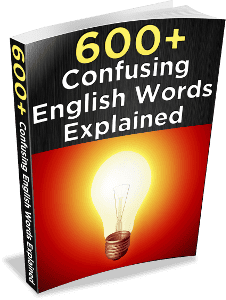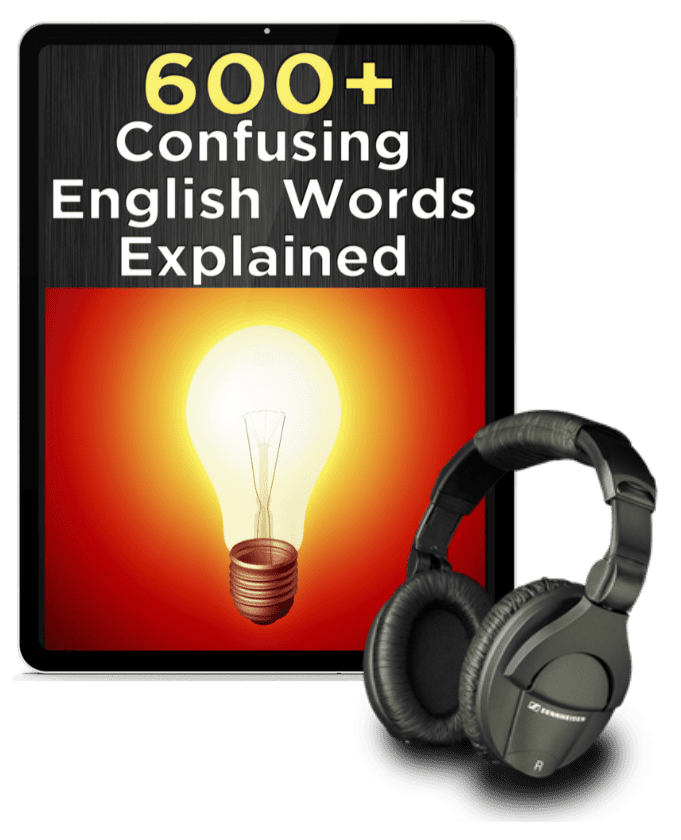
Today I wanted to clarify the difference between the words content, content, and contents, since it can be really hard to figure out.
The English language is full of words like these, and I’ve collected a lot of them inside my e-book, 600+ Confusing English words Explained.
Like the title says, the e-book will explain them to you so that you’ll understand when to use one word and when to use the other one. So you don’t have to be confused, instead you can use those words confidently!
con-TENT vs. CON-tent
All right, let’s start with con-TENT vs. CON-tent. Notice the pronunciation difference – the stress on the second syllable con-TENT vs. the stress on the first syllable CON-tent.
Con-TENT is an adjective meaning satisfied. If you’re content, you’re happy with what you have, you’re satisfied with your current situation, you’re not trying to change it or get more things.
If you’re content with your job, you’re happy and comfortable in it, you’re not trying to get a raise or looking for a different job.
You could say that your cat is sleeping on the couch, perfectly content, totally happy with its current situation.

Try to use it in a sentence: I’m content with… and then name a situation you’re satisfied with.
CON-tent with the stress on the first syllable is a noun referring to what is inside something.
The content of a book/movie would be the topics, the characters, the ideas inside it. Some movies have adult content – meaning scenes or words inside it that would not be appropriate for children.
Content vs. Contents
So when do we use content and when do we use contents?
We usually use contents, plural, when talking about countable individual items inside something.
So when my plastic shopping bag ripped, the contents – the individual items that were inside the bag – fell onto the floor.
You could say I’ve organized the contents of my desk drawer – the individual items inside it.

And we usually use content, singular, when talking about information, which is uncountable:
- the content of a book/movie
- the content of a speech
- the content of a website
- the content of a magazine or newspaper
We also sometimes use it when talking about uncountable elements inside food:
- bacon has a high fat content
- this meaty lasagna has a high protein content
- vodka has a high alcohol content and beer has a lower alcohol content
Although we talk about the content of a book, the information contained inside of it in general, the list of chapters at the beginning is called the table of contents. Probably because we can count the chapters individually. So the general content of the book is its general information, but the table of contents lists the countable chapters or sections.
Another exception is that we sometimes talk about the contents of a letter/document, meaning the facts inside it. I know this is tricky because we typically use content singular for information, but you’ll still sometimes see sentences like:
- The contents of the letter shocked the whole family.
- I’ll review the document and send feedback on its contents.
With letters/documents you could use either content or contents.
All right? Thanks for joining me today – and don’t forget to get your copy of 600+ confusing words explained, because there’s a lot more to learn!


